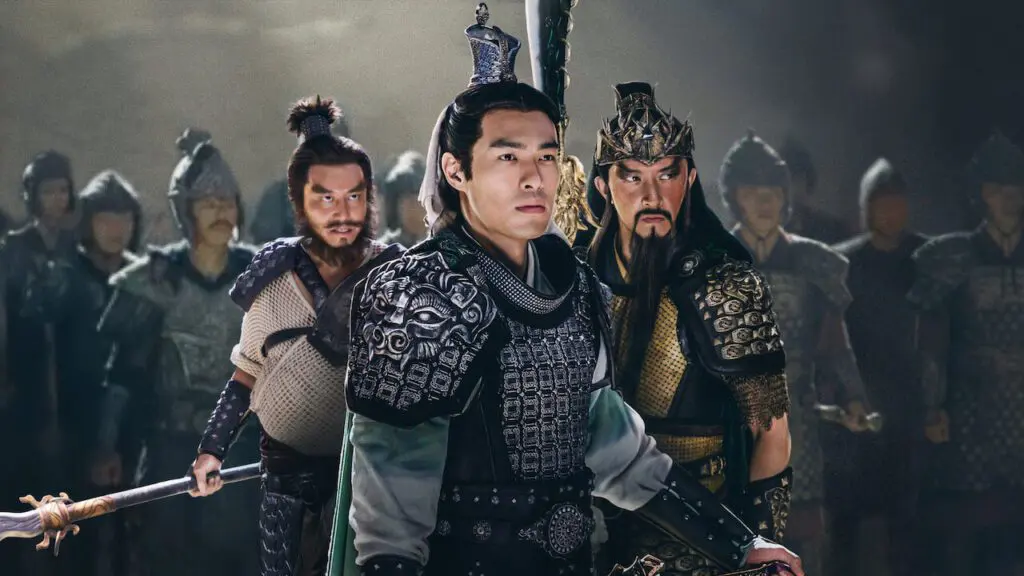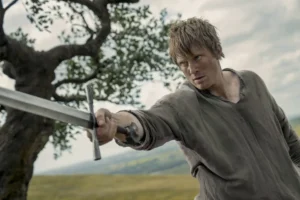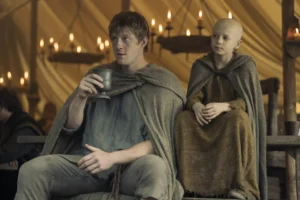Summary
Dynasty Warriors is a two-world approach that collides between the fantasy tropes of video games and the tales of Lao Guazhong’s semi-historical novel. It’s an entertaining jumbled story with enchanting cinematography that emerges with unsophisticated CGI and rushed storytelling.
First of all, I’m not a gamer. I do not play Dynasty Warriors. Many of you are probably fans of this Japanese video game franchise. There’s a not-so-interesting story that makes me want to contribute to reviewing this film.
Last year, I was running as a presidential candidate for a literacy community. Long story short, while making a grand design, I called one of my friends to ask what kind of innovation should I bring to the community.
Since the vision of the community is to strengthen the interest in reading, I was thinking of breakthrough ideas where literacy is not just about books to make it more thrilling for the younger generation. “How about making it like Dynasty Warriors?” he said.
That’s when I learned of Luo Guazhong’s semi-historical novel Romance of The Three Kingdoms which is the foundation of the video game. I was captivated and went through hours of browsing about Dynasty Warriors.
It is brilliant to innovate a semi-historical novel into videogames, creating a fun way to learn! Thanks to that insight, I was able to charm the community. Although I did not win the election, the idea lingers. Perhaps that’s what has happened to this film.
It charms you with strong narratives, and engaging cinematography from the beginning yet fails to reach its peak to swoon you over — but the idea lingers.
After 4 years of drag, Roy Chow’s Dynasty Warriors finally lands itself at the Chinese box office and Netflix. The screenplay is written by Christine To. Like the video games, the film follows the roots of Luo Guazhong’s novel while implying the live-action and fantasy cliché from the game universe.
Except, there are no mystical creatures, just mystical swords. The film opens with enchanting cinematography of New Zealand and rip-roaring live-action sets, alongside a turbulent late Eastern Han Dynasty narrative. It is set in a time where civil rebellion rises to dethrone the King.
Like many historical films, it explores the dark theme of human nature, which is caused by power and the throne. After Dong Zhuo (Lam Suet) takes control of the court with his destructive and corrupt legacy, the heroes across the country begin to rise.
The three brothers; a loyal, diplomatic, and humanist Liu Bei (Tony Yang), a brave man of pride, Guan Yu (Han Geng), and hot-tempered yet skillful Zang Fei (Justin Cheung), set on a never-ending journey with the mission of forming allies to dethrone Dang Zhuo and save the people of the Han Dynasty.
On the journey, they meet Master of The Sword Forge Castle (Carina Lau), who later gifted them with swords made from bloodstone. Of course, we need a highly determined character and intimidating antagonist to stir the story. We get Cao Cao (Wang Kai), a nationalist, ambitious, and daring soldier determined to kill Dong Zhou. He cares for nothing but the dignity of the Han Dynasty. His superior is Lu Bu (Louis Koo), a ruthless and highly-skilled General of Dong Zhou, who tends to betray.
Louis Koo’s charismatic performance stands out the most. With only minimum lines and motion, he still delivers an intimidating presence. Everything about him is just a red flag. Wang Kai, on the other hand, successfully delivers Cao’s ambition and pain. There’s a scene where he mistakenly kills an innocent family of his father’s loyal friend, and it is quite moving.
Somehow, it is also symbolic of how innocent lives mostly become the victims of revolution. Tony Yang had this undeniable modest aura that goes well with his characters. Lam Suet’s intimidating yet witty portrayals also add variety to the film. Other than that, the rest of the cast seem odd, probably due to the lack of depth in their character’s stories.
I expected more bonding from the three brothers, but it is probably due to the plot too. Nevertheless, the stunts deliver various tricks for live-action lovers.
I need to point out the minimal roles of the women characters in the film. We can see how women are portrayed as sexual objects, intimidation, and glorious temptation, rather than solid characters that add balance and variety.
Historically speaking, it is understandable. Other than the story’s needs, it also a real-life situation that transpires, especially during the war era, where women and children are often abused and used as sexual intimidation objects. It is a breath of fresh air when we get to see Diaochan (Gulnazar) and Carina Lau’s cameo amidst the chaos of a men’s war.
Although the cinematography and scoring are appealing, from the Timpanis to electric guitar riffs, the film serves us with rather unsophisticated CGI. Since the idea is to imply the fantasy tropes from the video games, it works well in some parts, especially the sword movements that intend to showcase the power of each character.
However, too much CGI can actually kill the value of the scene, making it shallow and eliminates the rawness of emotions. The main battle loses its peak due to the overwhelming CGI, making it hard to watch, and the works of the action directors went unnoticed.
While it manages to captivate initially, the film fails to keep the story engaging and balanced until the end. Everything feels rushed to fulfill the 120 minutes runtime. Some of the jokes and dialogues are tedious, but it may be because of the various possibilities of interpretation within the language.
The worst part is the cliffhanger ending. It’s as if we’re suddenly shifting to a new tone in musical composition with not enough spaces and calculations to build up the modulation. It ends with confusion rather than satisfying feelings and expectations.
Overall, it is still entertaining to watch with all the superpowers. Not to mention the captivating cinematography and the determination that is shown throughout various characters. The film actually has a great message to convey: the heroes lie within you.




